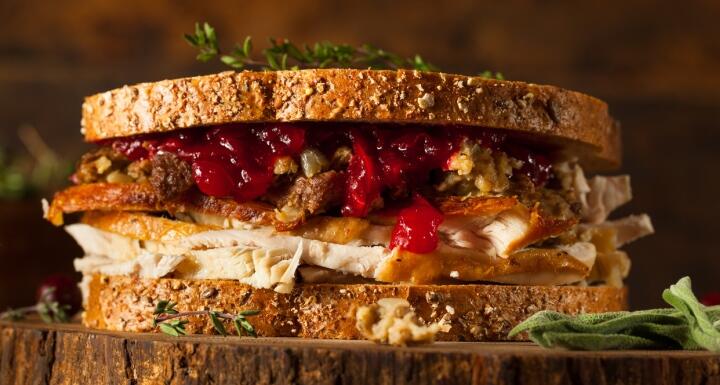On July 19, 2016, the "You Pick Two®"-famous Panera Bread filed a lawsuit in St. Louis against Papa John's, claiming that the international pizza company hired away a Panera IT executive who is misappropriating trade secrets. Panera Bread is alleging that its former executive has knowledge of proprietary and confidential information that should be protected by trade secret laws. And Panera Bread is concerned that its former employee will use this knowledge to make Papa John's and its "Better Ingredients" even better from an IT standpoint, which Panera Bread claims is a violation of trade secret law and the employee's non-compete agreement.
While this lawsuit is in its infancy, seeing these two food giants prepare for legal battle highlights the importance of an article we published back in 2013 on North Carolina's trade secret laws. Indeed, there are several important factors a business should consider when thinking about protecting its information as trade secret or pursuing a lawsuit (like Panera Bread) alleging that another business has misappropriated its trade secrets.
First, it is important to remember that trade secrets are broadly defined under North Carolina's Trade Secrets Protection Act, which states that
"Trade secret" means business or technical information, including but not limited to a formula, pattern, program, device, compilation of information, method, technique, or process that:
a. Derives independent actual or potential commercial value from not being generally known or readily ascertainable through independent development or reverse engineering by persons who can obtain economic value from its disclosure or use; and,
b. Is the subject of efforts that are reasonable under the circumstances to maintain its secrecy.
N.C. Gen. Stat. § 66-152(3). Accordingly, there is a great deal of proprietary and confidential information that may be protected as trade secret. Further, one benefit of the Act is that there is no formal registration or application process required for sensitive business information to acquire trade secret status.
Second, if a business has information that may be protected as trade secret, it is important to consider if this information may also be protected under federal patent law, which has more narrow restrictions and requires an in-depth application process with the United States Patent and Trademark Office. While not all trade secrets are patent eligible, it is important for businesses to know if their information, ideas, products, or processes may be protected under federal patent law. This will allow a business to make an educated decision regarding which form of protection to seek as there are advantages and disadvantages of both processes.
Third, in order to take advantage of trade secret protection under the Act, a company must be proactive and diligent in identifying its trade secrets. On a regular basis a business must ask itself: "What information do we have that could be a trade secret?" This ongoing analysis is critical because North Carolina case law demonstrates that businesses which identify their trade secrets with specificity and precision on an ongoing basis will be in the best position to enforce their rights in the event of litigation. Indeed, many businesses that have brought claims for misappropriation of trade secrets have stumbled at the starting line of litigation because they could not identify the secrets they wished to protect with sufficient specificity for the court. When identified with precision, and under the right circumstances, North Carolina's courts have recognized the following non-exclusive list as trade secrets:
- Business plans;
- Confidential customer lists;
- Historical information related to costs; and,
- Pricing and bidding formulas.
Fourth, a business must actually protect the trade secrets it has identified. It is all well and good if a business can identify the trade secrets it seeks to protect, but the court will not provide the requested protection if the business cannot also show that it has taken sufficient steps to protect these secrets. Protecting trade secrets can come in a variety of forms including, but not limited to:
- Locking a secret formula in a vault, e.g., Coca Cola;
- Password protecting computers, software, and even cell phones where trade secret information may be accessed;
- Insulating technology by other means to prevent access by competitors or hackers;
- Educating employees on the importance of keeping certain information confidential; and
- Requiring employees to sign non-disclosure or confidentiality agreements as a term of their employment.
A different approach likely will be required depending on the information involved and the stakes at risk if the information were ever revealed to the public or a competitor. As such, businesses must think critically when determining how to best protect their trade secrets.
Fifth, if a business decides to pursue a claim for misappropriation of trade secrets it must be prepared to act fast. If trade secrets are truly at risk, there is not much a business can do once its secrets are revealed to the public or a competitor—the proverbial cat is out of the bag. As such, North Carolina General Statute § 66-154 specifically allows a party to pursue injunctive relief as a remedy for misappropriation of trade secrets.
Therefore, if a business finds itself in the position of Panera Bread, with a former employee working for a competitor and potentially revealing trade secrets, the business can immediately seek a temporary restraining order to prevent the employee from continuing to work for the competitor. And to demonstrate the court's swiftness when it comes to these matters, Panera Bread is scheduled to have a hearing on its request for a restraining order just eight days after filing its complaint against Papa John's.
Businesses must be proactively engaged in identifying and protecting their trade secrets so that they can act quickly to seek relief from the court if this information is ever misappropriated. As the litigation between Panera Bread and Papa John's continues it will be interesting to see what steps Panera Bread took to protect its alleged trade secrets. In the meantime, these food franchises' top secrets likely will remain under wraps, since most courts, including North Carolina's, allow this information to be filed under seal to prevent further misappropriation of the secrets at stake.








